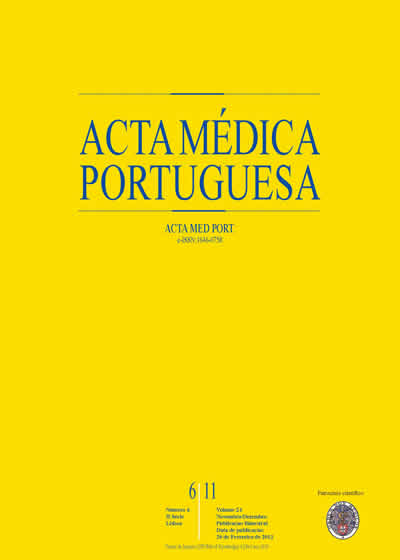Preimplantation genetic diagnosis: technical and ethical considerations.
DOI:
https://doi.org/10.20344/amp.1417Abstract
Following the advances in the techniques of medically assisted reproduction (ART), 1990 has seen the first born child after the development of pre-implantation genetic diagnosis. In this analysis embryos are tested for the presence of genetic anomalies at three to five days after fertilization and only unaffected embryos are transferred to the maternal uterus. The technique offers good prospects to couples at risk for conventional prenatal diagnosis. It is particularly useful where ART techniques are necessary, in which early embryo selection avoids later termination of pregnancy. In Portugal the application of laws concerning regulation of medically assisted reproduction in 2008 has clarified and formalised the medical and laboratory procedures and in some cases fundamentally changed them, particularly in the requirement to cryopreserve all high quality non-transferred embryos and in specifying conditions in which embryo experimentation may be permitted.Downloads
Downloads
Published
How to Cite
Issue
Section
License
All the articles published in the AMP are open access and comply with the requirements of funding agencies or academic institutions. The AMP is governed by the terms of the Creative Commons ‘Attribution – Non-Commercial Use - (CC-BY-NC)’ license, regarding the use by third parties.
It is the author’s responsibility to obtain approval for the reproduction of figures, tables, etc. from other publications.
Upon acceptance of an article for publication, the authors will be asked to complete the ICMJE “Copyright Liability and Copyright Sharing Statement “(http://www.actamedicaportuguesa.com/info/AMP-NormasPublicacao.pdf) and the “Declaration of Potential Conflicts of Interest” (http:// www.icmje.org/conflicts-of-interest). An e-mail will be sent to the corresponding author to acknowledge receipt of the manuscript.
After publication, the authors are authorised to make their articles available in repositories of their institutions of origin, as long as they always mention where they were published and according to the Creative Commons license.









